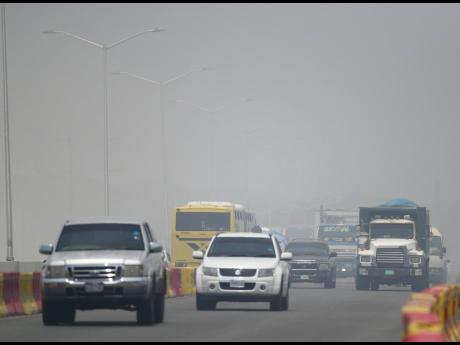Editorial | Pollution alert!
Jamaica needs to get serious about pollution. While it is vitally important for policymakers to focus on the economics of the country, it is also essential to balance economic growth and environmental sustainability.
A sharp reminder of the urgency of the matter came from one of the country’s heavy polluters this week, the Riverton City dump. On Tuesday and Wednesday, the entire city was blanketed by toxic fumes and haze caused by a fire at the dump. With the warning of the World Health Organization (WHO) that air pollution is the biggest global killer, the magnitude of the problem can be placed into sharp focus.
With pollutants afloat in the atmosphere, air quality would have been severely reduced, making it unsafe for persons, particularly those troubled by respiratory illnesses. At least one major industrial complex was forced to close and, with advisories to stay indoors, production would have been affected.
One could be forgiven for describing Tuesday’s event as the annual toxic belch by the city’s landfill, for we have witnessed similar conflagrations at this landfill over the years.
Summoning the Jamaica Fire Brigade and the Jamaica Defence Force is the usual response by the management of the National Solid Waste Management Authority (NSWMA). The NSWMA has said it has all the necessary equipment and materials to deal with fires. So, after the clean-up and cooling down operations, do they simply await the next fire or are there strategies that would help to reduce, eliminate or even prevent pollution at the source?
Often it is said that the fires were set by arsonists. If persons are deliberately lighting these fires, is arresting and punishing them one of the strategies being pursued?
NEGATIVE EFFECTS
Atmospheric pollution emanating from landfills like Riverton City is not the only pollutant that challenges people’s existence. The negative effects of pollution are evident in the quality of water, air and land. For example, with the current building boom, construction waste, dust and emissions from heavy duty equipment give us reasons to be concerned. Then there is noise pollution, which disproportionately affects communities which are close to so-called entertainment zones. Noxious odours from farms and industrial operations are also nuisances that have to be endured.
It is shameful for citizens to be breathing unsafe air, for it is well known that the effects of smoke can range from eye and respiratory tract irritation to more serious long-term medical conditions.
If we accept that Jamaica is a throw-away culture, then it would be easy to understand the amount of waste that accumulates on the streets and elsewhere. Households and businesses generate mountains of waste, and disposal is often done in a callous manner. We must confront this menace, and the government should lead the way by abiding by the many international agreements which it has signed.
Individuals must be prepared to play their part in reducing pollution. Think about motor vehicles and lawn mowers, they are also sources of pollution. With education, more persons could become champions of clean air by using less energy and becoming more efficient.
We urge the government to abide by pollution targets by developing comprehensive environment pollution control measures to achieve them. It cannot be overstated that economic success must be matched by environment protection and social responsibility. Environmentalists have laid out the manner plainly: air pollution poses the greatest environmental risk to people’s health. Additionally, they have argued that failure to come to grips with pollution is one of the great public health failures of modern times.

